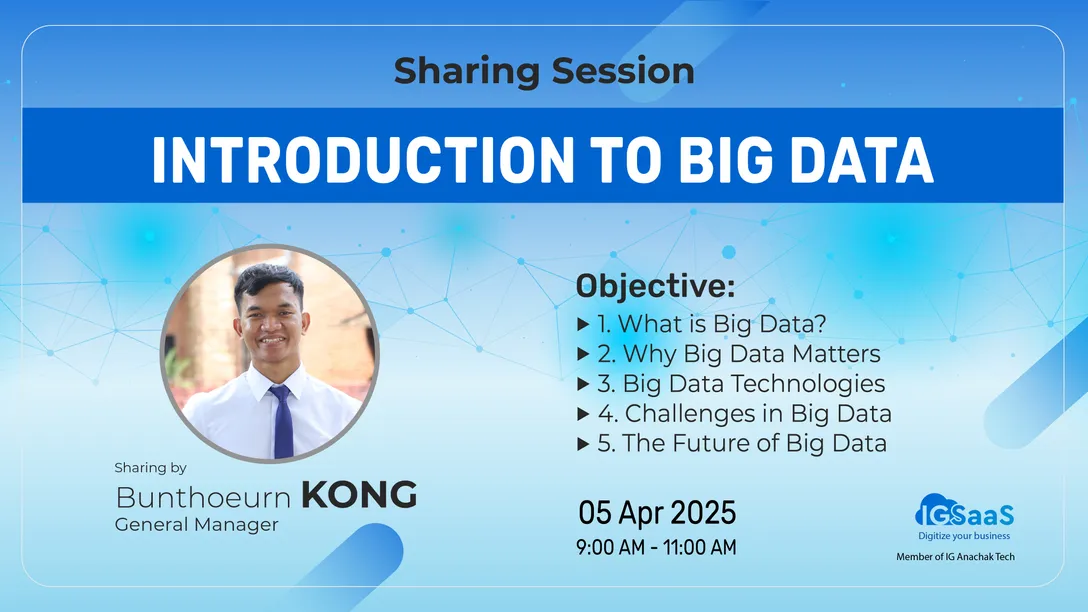- Sharing
- Technology
Introduction To Big Data

Author
IG SaaS
Published
05 April, 2025
Location: IGSAAS
Date: 05 April, 2024
Sharing By: Kong Bunthoeurn - Co-Founder/General Manager
Introduction to Big Data
1. What is Big Data?
Big Data refers to extremely large datasets that are complex and difficult to process using traditional data-processing tools. These datasets are often generated at high speeds and come in various forms, including structured, semi-structured, and unstructured data. Big Data is defined by its 5 V's: Volume, Velocity, Variety, Veracity, and Value.
2. Why Big Data Matters
Big Data matters because it enables organizations to gain valuable insights by analyzing vast amounts of information. By understanding patterns, trends, and correlations within Big Data, businesses can make data-driven decisions, improve customer experiences, enhance operational efficiency, and drive innovation across industries such as healthcare, finance, and marketing.
3. Big Data Technologies
Several technologies have been developed to manage and analyze Big Data. These include:
- Hadoop: An open-source framework that allows for the distributed processing and storage of large datasets.
- Spark: A fast, in-memory processing engine that handles Big Data workloads with ease.
- NoSQL Databases: Databases like MongoDB and Cassandra are designed to handle unstructured and semi-structured data.
- Machine Learning and AI: These technologies are often used to mine insights from Big Data by detecting patterns and predicting outcomes.
4. Challenges in Big Data
While Big Data offers tremendous potential, it also presents several challenges, including:
- Data Quality: Ensuring the accuracy and reliability of the data.
- Data Privacy and Security: Protecting sensitive information from unauthorized access and breaches.
- Data Integration: Combining data from diverse sources to create a unified view.
- Scalability: Effectively handling ever-growing volumes of data while maintaining performance.
5. The Future of Big Data
The future of Big Data is exciting, with advancements in artificial intelligence, machine learning, and the Internet of Things (IoT) driving its evolution. As data continues to grow, organizations will increasingly rely on advanced analytics and real-time data processing to stay competitive. Big Data will continue to shape industries by unlocking deeper insights and enabling smarter decision-making.




